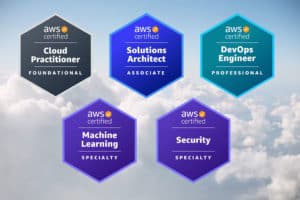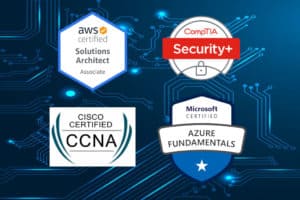If you’re a medical transcriptionist feeling the itch for change, you’re not alone. Maybe you’re craving variety, or perhaps you’re looking for a way to spruce up that daily grind with a dash of something new.
This post is your treasure map to a trove of alternatives, guiding you to careers where your skills will shine just as brightly.
Quick Takeaways:
- Leverage your detail-oriented nature and medical language expertise to pivot smoothly into Healthcare Documentation or HIT roles.
- Grab the opportunity to translate your transcription precision into a successful Medical Coding and Billing career with targeted certification.
- Utilize your existing medical knowledge and communication prowess in exciting realms like Medical Writing or Health-Tech Customer Support.
Is Healthcare Documentation Specialist a Good Pivot?
Absolutely, pivoting from a medical transcriptionist to a Healthcare Documentation Specialist (HDS) can be a smooth transition and a smart career move. An HDS, often known as a medical scribe, plays a crucial role in documenting patient encounters in real-time during medical exams. Essentially, they’re the wizard behind the curtain, ensuring that all the important details are captured accurately and swiftly.
Your skills as a medical transcriptionist lay a rock-solid foundation for this pivot. Attention to detail, fast and accurate typing, a strong grasp of medical terminology, and impeccable grammar – these are the arrows in your quiver that are also essential in healthcare documentation. Not to mention, you’re used to wearing headphones for hours, which only ups your concentration game.
To hitch your wagon to this new role, you might need to brush up on the latest electronic health record (EHR) software or acquire a certification, such as the Certified Medical Scribe Professional (CMSP) credential offered by the American Healthcare Documentation Professionals Group. This credential endorses your ability to work alongside physicians and play an integral role in the healthcare delivery process.
Can Medical Transcriptionists Transition to Health Information Technology?
When you’re knee-deep in medical transcription, you’re already more than familiar with patient reports and the nuances of documentation. That experience is a goldmine for hopping over to Health Information Technology (HIT). HIT experts are the backbone of managing patient information, ensuring data integrity, and safeguarding medical records in the digital age.
Transcription work has given you a peek behind the curtain of medical records and terminology – a valuable prelude to the HIT field. It’s like you’ve got the secret sauce, but now you’re learning to cook with new ingredients. HIT careers might require you to get cozy with data analysis, information governance, and database management systems, which can involve a learning curve.
Gear up to possibly dive into additional training or even an associate’s or bachelor’s degree in health informatics or health information management. Organizations like the American Health Information Management Association (AHIMA) offer respected certifications, such as the Registered Health Information Technician (RHIT) credential, which can make you a hot ticket in the HIT world.
What About Medical Coding and Billing?
Think of medical coding and billing as a game of “match the codes” where the stakes are high, and every detail matters. These roles involve translating medical procedures, diagnoses, and medications into standardized codes that are used for insurance billing purposes.
As a medical transcriptionist, your eagle-eye for details and familiarity with medical jargon can be an ace up your sleeve. These skills will help you catch the nitty-gritty intricacies needed in coding and billing, just like you do with transcription. But here’s the kicker – while both fields deal with healthcare documentation, coding and billing require you to understand and apply complex coding systems like ICD-10 and CPT.
To ace this transition, you may need to crack open the books and snag a certification like the Certified Professional Coder (CPC) offered by the American Academy of Professional Coders (AAPC). Bear in mind, this isn’t just about memorizing codes; it’s about understanding the story each patient’s record tells and weaving that into a narrative that insurance companies understand.
So, dear reader, whether you’re eyeing the detail-driven world of healthcare documentation, the tech-savvy sphere of HIT, or the code-centric realm of medical coding and billing, your medical transcriptionist background sets the stage for a suite of rewarding alternatives. It’s a matter of playing to your strengths, plugging any skill gaps with targeted training, and seizing the opportunities that resonate with your career aspirations. The common thread in all these paths is the critical role you play in the delivery of healthcare, and that’s something to be proud of.
How Can I Use My Skills in Medical Writing or Editing?
Picture this: you’ve spent years getting cozy with some pretty complex medical jargon, and you’ve got an eagle eye for detail that would put Sherlock Holmes to shame. Now, how about channeling those skills into the world of medical writing and editing? This could be your golden ticket to a career path that’s both stimulating and rewarding.
Medical writing involves creating well-researched and well-structured documents that communicate medical information. Think about the plethora of materials such as clinical trial reports, research papers, educational content, and even marketing materials for pharmaceuticals or medical devices. These documents need to be not just accurate but also as clear as a bell.
Now, editors in this field are like the guardians of quality. They ensure that the final drafts are free from errors and that complex medical info is presented in a way that’s both accessible and professional.
Transition like a Pro!
Your journey from medical transcriptionist to medical writer or editor might be smoother than you think:
Knowledge is Power : Your current know-how on medical terminology and procedures gives you a head start. Medical writers and editors need a strong foundation in these areas for credibility and accuracy.
Attention to Detail : This is your superpower, and it’s non-negotiable in this field. A misplaced decimal or a confused medical term could lead to misunderstandings—or worse.
Writing Chops : If you’ve been jotting down dictations accurately, you probably have the writing skills needed, with a pinch of creativity and writing flair that can be honed with practice and time.
Certifications and Courses : While not always mandatory, a certificate or degree in medical writing or science communication could be a feather in your cap. Institutions like the American Medical Writers Association offer resources and credentials that could give your resume a healthy glow.
Remember, it’s a journey. Network with professionals, attend workshops, and consider joining professional associations to sink your teeth into this new adventure.
Does Customer Support in Health-Tech Companies Fit My Skill Set?
If you’re the kind of person who gets a kick out of helping people and knows the difference between tachycardia and bradycardia without batting an eye, then customer support in health-tech companies could be up your alley. Here’s why you might just nail it:
Communication is Key : If you had a dime for every time a clear and concise transcript saved the day, you’d be rich! Use those communication skills to explain complex medical terms to customers in a way they’ll grasp.
Empathy : Ever tried reading back a doctor’s notes without a hint of empathy? Doesn’t work, does it? The same goes for customer support. Your ability to empathize while staying professional is a prized asset in this field.
Rapid Learning : You’ve kept up with medical advancements to remain relevant as a transcriptionist. Transitioning to customer support could mean mastering new tech, but you’ve got the brain wiring for it.
Here’s the real deal that many don’t tell you: health-tech companies aren’t just looking for technical wizards; they’re after folks who can de-jargonize (yep, that’s a word now) medical terms and make tech feel like second nature to users.
Your potential new gig might involve:
- Troubleshooting: Assisting users with tech issues while doling out a generous helping of patience.
- Onboarding: Helping new customers navigate and make the most of a product.
- Feedback Loop: Being the bridge between consumers and the techies, translating customer experiences into actionable feedback.
Shifting gears could mean you’ll need to get a bit tech-savvy, but remember, you’ve learned the labyrinthine language of medicine. A bit of tech is just a new dialect you can pick up with some elbow grease. Plus, you could find yourself riding the wave of digital healthcare innovation, and what’s not to love about that?
So, whether you’re sketching out diagrams for a medical journal, or you’re walking someone through their health-tech woes, remember this: your current skill set is not just a foundation – it’s a launchpad. The sky’s the limit, so let your career take flight!






